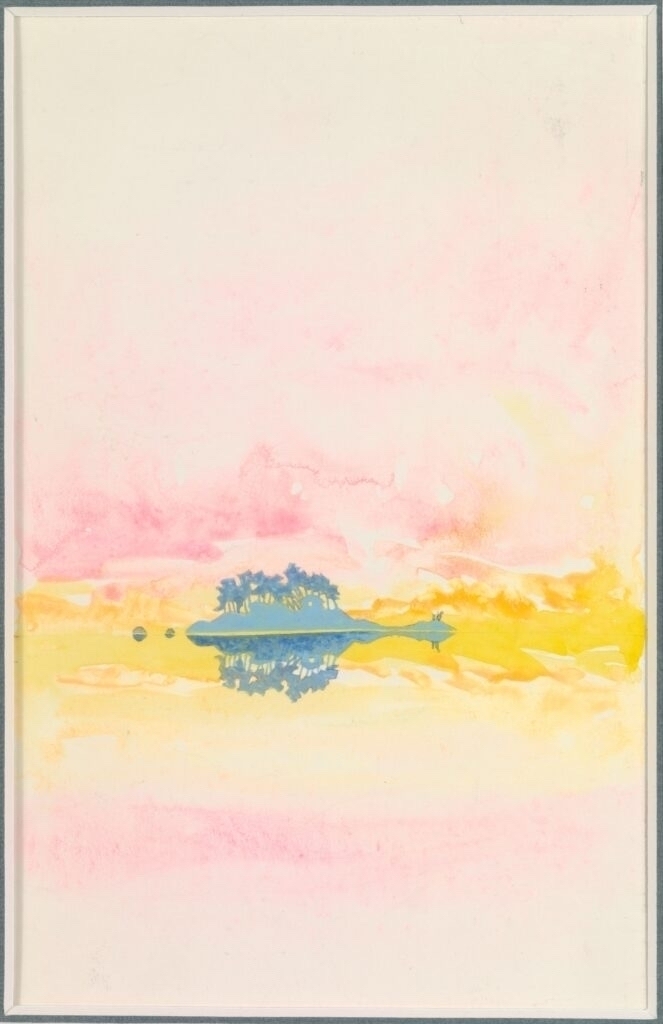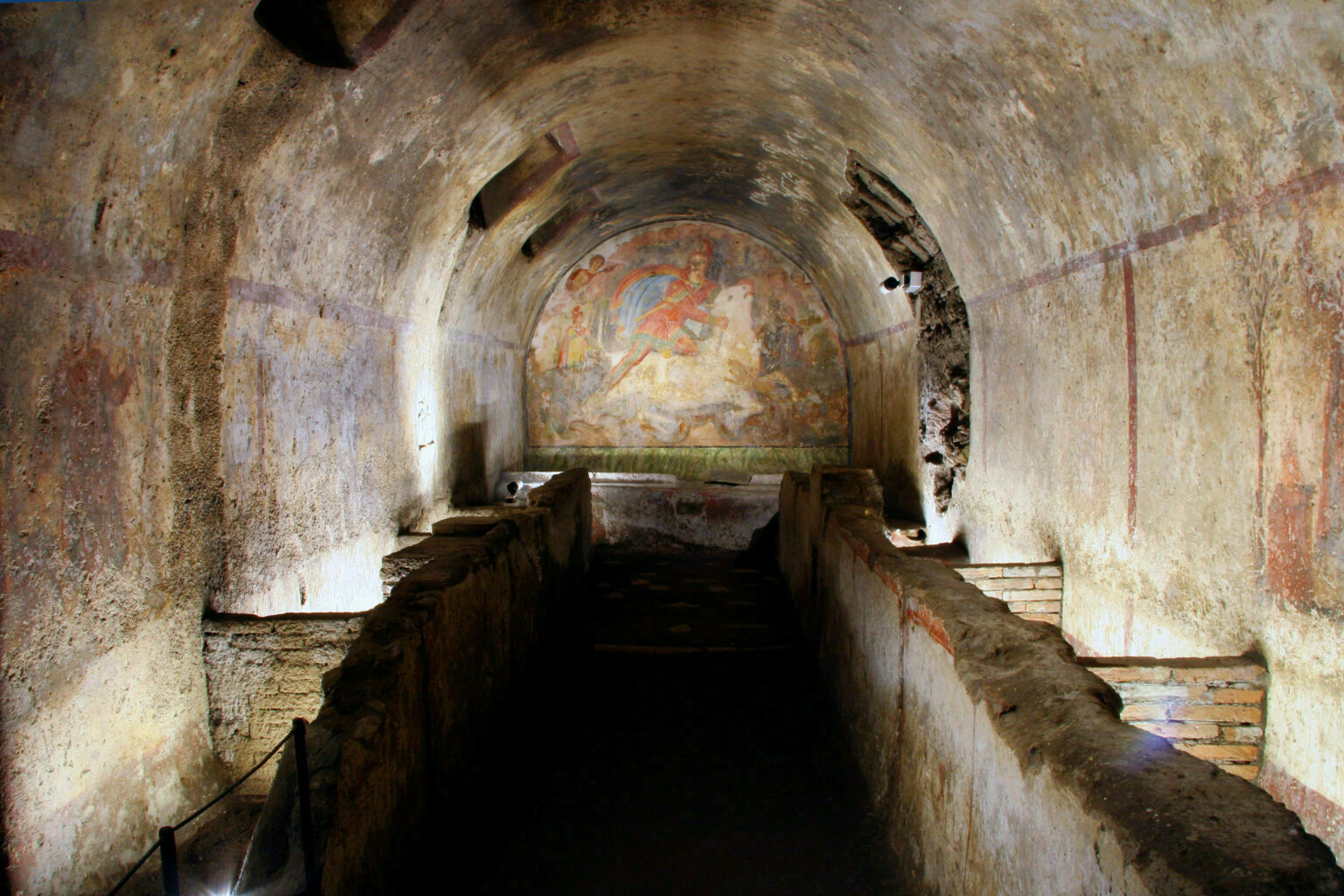My lens was fogging up when I took this one, but I sort of like the effect.

the smoker
They came, as all extremists do
In time, to a sort of grandeur …
— Richard Wilbur, “The Undead”
There’s a kind of patio in front of this hotel and a man sits there, smoking a cigarette.
I arrived at this hotel three days ago and he was already there.
When I awake in the morning — I peer out of my window, look down — he is there.
When I go to my car, he is there.
When I ready myself for bed, he is there. Smoking.
He has neither phone nor book. He listens to nothing — nothing that you or I could hear — and appears to look at nothing, except, perhaps, the tiles that floor the patio.
It could be that he has neither sight nor hearing, that he is only mouth and lungs.
He sits by a table, but nothing is on the table: no pack of Marlboros, no lighter.
He wears a loose casual shirt and nylon trousers.
It is as though he has one cigarette he smokes eternally. It never burns down, but eternally renews itself.
“Purity of heart is to will one thing,” said Kierkegaard. This man has the purest of hearts.
When I check out today, he will surely still be there, and I will try to catch his eye. But I have little hope of that.
Perhaps I will return to this hotel in a year or two and find him still there, smoking.
Perhaps I alone can see him.
Why they don’t accept this word I can’t even imagine!

I’m beginning a series on Thomas Mann’s Joseph and His Brothers.
A remarkable visual reconstruction of Tenochtitlan.
Mann's Joseph: Prelude
I recently read Thomas Mann’s tetralogy Joseph and His Brothers — one of the more extraordinary reading experiences of my recent years. I had started it once, decades ago, and then again a few years later, but it’s probably been 25 years since I’ve even tried to read it.
I have a kind of instinct for reading, or at least I think I do. I always have plans for what to read; sometimes I follow those plans and sometimes I don’t. But every now and then I’ll be planning a series of books to read, or articles and essays — or maybe I’ll actually be in the middle of reading something — when I’ll suddenly think, You need to drop what you’re doing and read this other thing instead. That doesn’t happen often; two or three times a year, maybe. But it is an inner prompting (like Socrates’s δαιμόνιον) that I have learned to obey. I don’t know where it comes from, but I do know that when the impulse comes I find it irresistible. I have learned to accept the prompt and to be grateful for it.
So: a few weeks ago, I was in the middle of planning some reading, and I looked up from whatever I had on my lap, my computer or my notebook, and my eyes fell on my copy of Joseph and His Brothers, and I thought: It’s time to read that. I did, and I couldn’t possibly be happier that I did; it’s an outrageously brilliant work of art. While reading I had thought that I might write a long essay about the experience of reading this book, but on further consideration I doubt that my responses to it would fit into an essay. They’re too complicated and digressive. (In that sense, they’re much like the book itself.) So I’ll be writing about it here, on themes and topics and events that interest me, in no particular order. It’s not the sort of book that you comprehend on one reading – it’s not the sort of book that you can even confidently navigate in in one reading – so my attempt to write about it will require me to re-navigate it, to return and reread and rethink and reconsider. Stay tuned. I mean, if you’re into this kind of thing.
Smeagol, philologist
I’m sure others have said this before — I doubt I have many thoughts about Tolkien that others have not had before me — but I am reflecting on this passage from Gandalf’s account of Gollum in the chapter of The Lord of the Rings called “The Shadow of the Past”:
The most inquisitive and curious-minded of that family was called Sméagol. He was interested in roots and beginnings; he dived into deep pools; he burrowed under trees and growing plants; he tunnelled into green mounds; and he ceased to look up at the hill-tops, or the leaves on trees, or the flowers opening in the air: his head and his eyes were downward.
Is this not a Portrait of the Philologist as a Young Man? (Or as a young proto-hobbit.) Isn’t Tolkien here describing the déformation professionnelle of the historian of language, the characteristic danger faced by the scholar who always burrows deeper and deeper into the history of words, thinking — Gabriel Josipovici in his wonderful The Book of God says this is the characteristic illusion of 19th-century scholarship — that truth is always archaeological, always to be found at the Source or Origin. Gollum would eventually learn that “All the ‘great secrets’ under the mountains had turned out to be just empty night: there was nothing more to find out, nothing worth doing, only nasty furtive eating and resentful remembering.”
Perhaps, then, writing a book like The Lord of the Rings is, for the philologist, a spiritual discipline, a healthy re-ordering of priorities; and a reminder that genealogy — the long living history of a language, with unexpected detours and adventures and late flowerings — is more important, more alive, than archaeology?
This person with so many open browser tabs – how monstrous! Here’s what I do:
- See something interesting online
- Save to Instapaper and close tab
- Later, look at Instapaper and ask “Why did I save that?”
- Delete.
Ezra Klein: “One reason I left Twitter long ago is that I noticed that it was a kind of machine for destroying trust. It binds you to the like-minded but cuts you from those with whom you have even modest disagreements. There is a reason that Twitter’s rise was conducive to politics of revolution and reaction rather than of liberalism and conservatism. If you are there too often, seeing the side of humanity it serves up, it is easy to come to think that everything must be burned down.”
adjusting expectations
One thing we’ve learned over the past few years is that lawyers who are good on social media and television aren’t necessarily good in the courtroom. In fact, the very traits that make a good media lawyer — bold assertiveness, hardass rhetoric, creativity with insults — not only don’t work in the courtroom, they are often forbidden in the courtroom. People watch a lawyer perform on TV and think “Wow, I wish I could get that guy to represent me” — well, be careful what you wish for. Hire a lawyer in haste, repent at leisure — in an orange jumpsuit.
But there’s another side to this distinction, one that works in favor of defendants, not against them: People are convicted all the time in the court of social media opinion who would never be convicted in a courtroom. In jury trials, the defense attorney only has to get one holdout. Another way to think about that, in relation to a very famous defendant: around 35% of Americans strongly support Donald Trump, while a single juror is only 8% of a jury. If you’re Donald Trump’s defense attorney and the prosecutor has an iron-clad case against your client, you only need to have gotten one diehard Trump supporter — probably someone smart enough or devious enough to disguise his or her passion — onto the jury, and your guy walks.
And that’s if the prosecution has an ironclad case. What if the case isn’t ironclad? What if there’s room for doubt? Then you don’t even need a Trump supporter: you just need one person to take seriously what the judge tells the jury about our legal system’s presumption of innocence. Moreover, as Ken White has explained, prosecutors have to prove, not just suggest, that Trump explicitly intended to overthrow a legal election, not that he ranted and raved, or that he had a reckless disregard for truth. Everyone, including his strongest supporters, knows that he has a reckless disregard for truth, but that’s not a crime. And, given his long history of refusing to allow any significant duscussions to be put in writing, he may well be able to make a strong case that he was only acting on advice of counsel. (A defendant who makes such a plea gives up attorney-client privilege, but if nothing is in writing, then that may not hurt him. We’d just end up with conflicting bald assertions. Former attorney says X, former client says not-X.)
This is why prosecutors offer plea deals: Jury trials are a kind of judicial Russian roulette. They will not want to offer any plea deals to Donald Trump, but in the end I suspect that that’s what they’ll do. And I also suspect that Trump will refuse to accept the deal, preferring take his chances in court.
So, to people who read the news and see all these co-conspirators copping pleas and think that justice is finally coming for Orange Man: maybe you should adjust your expectations? Like you, there’s nothing (aside from peace in the Middle East) that I’d more like to see than Donald Trump cleaning toilets in prison. But unlike you, I don’t believe it will happen. Based on my understanding of the actual law, not how things are discussed on social media, I figure that there’s less than a 15% chance of his ever being convicted of anything, and a near-zero chance that he’ll ever serve time. Alas.
Damon Krukowski: “Bandcamp may be a small fraction of the music industry as a whole – digital downloads currently account for only 3% of recorded music revenues, according to the RIAA – but for independent artists like us and those we share bills with on tour, Bandcamp is not only a meaningful source of income, but one of the last online channels we have to communicate directly with our audience. Unmediated by algorithms, unencumbered by ads, untainted by data mining, the site is a throwback to an earlier paradigm.”
I wrote (several years ago, but just now posted) about the wayfaring mind.
the wayfaring mind
What follows is a talk I gave some years ago at Smith College. It weaves together some common threads in my work, and draws on some previous published stuff — for instance, the Introduction to my book of essays Wayfaring. I was chatting with a friend the other day when I remembered something I wrote in this piece, and did a quick internet search because I couldn’t remember where I had published it. But nothing turned up. I am now thinking that I never did publish it — perhaps because I thought that it has too much recycled material? I dunno. So I’m posting it here.
The essay is a representational genre, and what it represents is the movement of the mind across ideas, experiences, and sensations. The mind broods over these waters, restlessly, unpredictably, with a kind of Brownian motion. E. B. White once wrote, “The essayist arises in the morning and, if he has work to do, selects his garb from an unusually extensive wardrobe: he can pull on any sort of shirt, be any sort of person — philosopher, scold, jester, raconteur, confidant, pundit, devil’s advocate, enthusiast.” This description encourages and comforts, but it’s wrong. It would be more truthful if White had added that the essayist experiences during the course of the day unplanned and unwanted changes of clothing: you look down to smooth your philosopher’s robes and find that you’re now wearing the jester’s motley. The bells of your cap tinkle as you lower your head.
William Hazlitt’s essay “On the Pleasure of Hating” begins with a semi-comical account of the writer’s encounter with a spider which disgusts him but which he magnanimously refuses to kill. “We do not tread upon the poor little animal in question (that seems barbarous and pitiful!) but we regard it with a sort of mystic horror and superstitious loathing. It will ask another hundred years of fine writing and hard thinking to cure us of the prejudice and make us feel towards this ill-omened tribe with something of ‘the milk of human kindness,’ instead of their own shyness and venom.” But by the end of the essay this is what Hazlitt’s eccentric meditation on his — our — foibles has come to:
Seeing all this as I do, and unravelling the web of human life into its various threads of meanness, spite, cowardice, want of feeling, and want of understanding, of indifference towards others, and ignorance of ourselves, — seeing custom prevail over all excellence, itself giving way to infamy — mistaken as I have been in my public and private hopes, calculating others from myself, and calculating wrong; always disappointed where I placed most reliance; the dupe of friendship, and the fool of love; — have I not reason to hate and to despise myself? Indeed I do; and chiefly for not having hated and despised the world enough.
There would have been no way to see this coming from the opening anecdote; perhaps Hazlitt, when he sat down to write, hadn’t seen it coming either. (Yet note how the bitter comment on “unravelling the web of human life” evokes the spider with which the essay began.) We can after a fashion tell our minds how to think, and what to think about, but they seldom obey, and the essay as a genre forms a great long chronicle of their habitual disobedience.
But in any given essay we can only bear so much of this — as the early listeners of Wagner were often agitated by his propensity to leave certain chords unresolved, keys ambiguous, readers want their prose pieces to add up to something, to have a clear point or purpose, and ideally an identifiable story. This is the primary reason why true essays are rarely long. The longest one I know, and perhaps the finest in the English language, is Virginia Woolf’s A Room of One’s Own. To speak of beginnings again, I’ll note that she opens with an account of her puzzlement when asked to speak on “women and fiction”:
I sat down on the banks of a river and began to wonder what the words meant. They might mean simply a few remarks about Fanny Burney; a few more about Jane Austen; a tribute to the Brontës and a sketch of Haworth Parsonage under snow; some witticisms if possible about Miss Mitford; a respectful allusion to George Eliot; a reference to Mrs Gaskell and one would have done. But at second sight the words seemed not so simple. The title women and fiction might mean, and you may have meant it to mean, women and what they are like, or it might mean women and the fiction that they write; or it might mean women and the fiction that is written about them, or it might mean that somehow all three are inextricably mixed together and you want me to consider them in that light. But when I began to consider the subject in this last way, which seemed the most interesting, I soon saw that it had one fatal drawback. I should never be able to come to a conclusion. I should never be able to fulfil what is, I understand, the first duty of a lecturer to hand you after an hour’s discourse a nugget of pure truth to wrap up between the pages of your notebooks and keep on the mantelpiece for ever.
Woolf tells her kind inviters that she cannot achieve the task they set her: he thoughts could not be shaped into a lecture, with its “nugget of pure truth” to keep on the mantelpiece, but could only be an essay — a curiously misshapen thing, continually altering and re-forming according to … well, according to what? According to the conditions of the moment, both internal and external: an excited or downcast mind, a lively or enervated body — how well did you sleep last night? — surroundings that are peaceful and quiet or throbbing with positive energy or afflicted by multiple tensions. Thought is always moved by these chemical and muscular and environmental forces, and therefore so is the essay itself.
In addition to being perhaps the finest English essay, A Room of One’s Own offers the best demonstration I know of how essayistic thinking actually happens. Having received her assignment, Woolf, as she has already told us, “sat down on the banks of a river and began to wonder.” A little later, she writes,
Thought — to call it by a prouder name than it deserved — had let its line down into the stream. It swayed, minute after minute, hither and thither among the reflections and the weeds, letting the water lift it and sink it until — you know the little tug — the sudden conglomeration of an idea at the end of one’s line: and then the cautious hauling of it in, and the careful laying of it out? Alas, laid on the grass how small, how insignificant this thought of mine looked; the sort of fish that a good fisherman puts back into the water so that it may grow fatter and be one day worth cooking and eating.
But the thought was fish enough to excite Woolf, to set her “walking with extreme rapidity across a grass plot.” But “Instantly a man’s figure rose to intercept me…. he was a Beadle; I was a woman. This was the turf; there was the path. Only the Fellows and Scholars are allowed here; the gravel is the place for me.” Quick to obey, Woolf resumed the path — but the interruption “had sent my little fish into hiding. What idea it had been that had sent me so audaciously trespassing I could not now remember.”
One could accurately enough describe A Room of One’s Own as an attempt to recover that fish so frustratingly driven away by the abrupt appearance of the monitory Beadle. That small event is, of course, deeply and intrinsically connected to the things she will say about women and fiction. For the Beadles of the world have a great deal to say about whether women write fiction at all — they exert force (even if only rhetorically) on women’s bodies and therefore on women’s thoughts. “The book has somehow to be adapted to the body, and at a venture one would say that women’s books should be shorter, more concentrated, than those of men, and framed so that they do not need long hours of steady and uninterrupted work. For interruptions there will always be.”
Interruptions there will always be — Beadles, literal or metaphorical, there will always be. So To the Lighthouse (200 pages or so) rather than The Brothers Karamazov; Pride and Prejudice (300 pages) rather than War and Peace. An intriguing argument, though perhaps Woolf concedes too much. Half a century before she wrote those words, Middlemarch and Daniel Deronda had somehow emerged, after all — though here, as elsewhere in her work, Woolf is strangely reluctant to acknowledge George Eliot’s achievement. And perhaps she should be more hopeful about a future when women, women who have rooms of their own, will be interrupted no more often than men. A decade after Woolf’s speculations on the future of women’s writing, a woman named Rebecca West would produce one of the very greatest books of the twentieth century, Black Lamb and Grey Falcon, which is even longer than War and Peace.
But still: surely it’s true that “the book must be adapted to the body”; that interruptions happen to bodies, or to people with bodies; that what we write is intertwined with the frequency and nature of our interruptions. Perhaps we might also infer that people who suffer many interruptions ought to be writing essays: for essays can (as A Room of One’s Own does) record those interruptions and make them into art. So Kafka’s famous parable: “Leopards break into the temple and drink to the dregs what was in the sacrificial pitchers; this is repeated over and over again; finally it can be calculated in advance, and it becomes part of the ceremony.” A person whose writing can usefully incorporate the interrupting leopards is a natural essayist.
A few years ago the science fiction writer Cory Doctorow commented, “The biggest impediment to concentration is your computer’s ecosystem of interruption technologies.” We all know what he means — and, if we are honest, we know that we choose to enable those technologies. We are our own Beadles. We invite all available leopards to drink from our chalices. We’re like the women Woolf talks about who needed desperately to acquire rooms of their own, but as soon as we get such rooms we contrive ways for them to be invaded. To us, essays are starting to feel as expansive as three-decker novels: we default to tweeting, and when we can manage long periods of sustained concentration — say, ten minutes or so — we craft blog posts.
I exaggerate, a bit. Novels are still being written, some of them quite large. But I can’t help thinking that the essay, with its brevity, its tolerance of shifting patterns and values, ought to be the genre of our time. We should see it as a reservoir capable of holding a world of images and ideas.
But this is unlikely. The essay has always been the neglected stepchild of the literary genres. It is what writers settle for when nothing more attractive presents itself. In a letter Saul Bellow wrote in his old age, to his fellow novelist Cynthia Ozick, he lamented that he had “become such a solitary, and not in the Aristotelian sense: not a beast, not a god. Rather, a loner troubled by longings, incapable of finding a suitable language and despairing at the impossibility of composing messages in a playable key.” Near the end of his life, he thought, “I have only the cranky idiom of my books — the letters-in-general of an occult personality, a desperately odd somebody who has, as a last resort, invented a technique of self-representation.” This description of novels as “the letters-in-general of an occult personality” makes me wonder whether Bellow is one of those figures — there are many in the history of literary writing — who was really not suited to writing novels but wrote novels because novels were the thing to write. Consider, for instance, the famous letters Moses Herzog writes to dead philosophers. They are just brilliant little self-contained torpedos; they don’t need Moses Herzog. Bellow thought he had to come up with Herzog, and make things happen to him, in order to provide a plausible context for these letters, but he was wrong. They would have been just fine, better maybe, as “letters-in-general,” or (it amounts to the same thing) essays.
Similarly, by a long shot Walker Percy’s best book is Lost in the Cosmos, a comic Kierkegaardian satire with a forty-page excursus on semiotics (a lucid one, too) stuck in the middle. The book is basically a series of wonderfully crazy essays that spin off fictional cadenzas from time to time — in just the way that at a certain point in A Room of One’s Own Virginia Woolf improvises a moving speculation about Shakespeare’s imaginary sister. I wish Bellow had written a book like Lost in the Cosmos, on a grander scale, maybe: a big letter-in-general that dispensed with the trappings of fiction and just let that style, that extraordinary Bellovian voice, carry itself and us along. Why didn’t he? Because he lived in a time when novels were what mattered: to be an essayist would be to abandon any aspirations to recognizable greatness. It’s impossible to imagine an essayist winning the Nobel Prize for Literature.
So essays hide in novels. There must be twenty fine essays in Thomas Mann’s The Magic Mountain, all disguised as speeches by various characters. And Robert Musil’s unfinished masterpiece The Man without Qualities might best be seen as a vast ramifying network of essays and commentary on essayistic thought — and this is indeed the precise reason why Musil did not finish, could not have finished, the book. To finish it would have been to pretend that it was a novel. But Musil makes clear, within The Man without Qualities itself, that his deepest concern is to produce an exposition and defense of a certain philosophy — or a certain way of life — that he calls “essayism.” Just as one might write an essay about a work of fiction, Musil writes a work of fiction about the essay, or the act of essaying.
“The accepted translation of ‘essay’ as ‘attempt,’” Musil writes,
contains only vaguely the essential allusion to the literary model, for an essay is not a provisional or incidental expression of a conviction capable of being exposed as an error (the only ones of that kind are those articles or treatises, chips from the scholar’s workbench, with which the learned entertain their special public); an essay is rather the unique and unalterable form assumed by a man’s inner life in a decisive thought… . There have been more than a few such essayists, masters of the inner hovering life, but there would be no point in naming them. Their domain lies between religion and knowledge, between example and doctrine, between amor intellectualis and poetry; they are saints with and without religion, and sometimes they are also simply men on an adventure who have gone astray.
I want to place special emphasis on this one idea: an essay is rather the unique and unalterable form assumed by a man’s inner life in a decisive thought. As an example, consider Virginia Woolf’s decision to write a book in order to explain how she came to the “decisive thought” that a woman who wants to write fiction needs £500 a year and a room of her own. It is intrinsic to Woolf’s authorial modesty to say, or imply, that she took this path because it was easier than coming up with a clean, pure nugget of truth that we might set upon our mantlepiece; but in fact what she chose to do was almost infinitely more difficult. “Unfortunately,” Musil writes, “nothing is so hard to achieve as a literary representation of a man thinking.”
Therefore, Musil concludes, a serious attempt at this task is a very rigorous enterprise, though it is rarely recognized as such. He once asked, “Is the essay something left over in an area where one can work precisely?” For this is what many people think: that one could but precise about one’s subject if one had the disciplined intelligence, but one chooses instead to draft a frivolous little bagatelle. But what if, Musil continues, the essay is rather “the strictest form attainable in an area where one cannot work precisely”?
Let me return to my opening sentence: “The essay is a representational genre, and what it represents is the movement of the mind across ideas, experiences, and sensations.” This thinking about thinking is enormously difficult, because its target is always moving. I’m reminded here of Kierkegaard’s complaint about retrospection: “It is quite true what philosophy says: that life must be understood backwards. But then one forgets the other principle: that it must be lived forwards. Which principle, the more one thinks it through, ends exactly with the thought that temporal life can never properly be understood because I can at no instant find complete rest in which to adopt the position: backwards.”
To be in motion oneself, trying to fix one’s attention on something also in motion, something that’s a part of you (or that you’re a part of), twisting your head to peer behind even as your feet propel you forward … surely this is a recipe for confusion. But confusion is not always to be shunned. As Iris Murdoch once wrote, “Coherence is not necessarily good, and one must question its cost. Better sometimes to remain confused.” To be in the midst of one’s own mind, to be making one’s way by dead reckoning, to be looking around always for orientation or distraction, does not lead to coherence, but it does tend to produce surprise. And often that surprise is productive.
One might think that “wayfaring” is rather too dignified and directional a word for such ceaseless mental movement. Earlier I compared it to Brownian motion, which is the textbook example of physical randomness. And after all, Montaigne wrote when he was virtually inventing this genre, “I cannot keep my subject still. It goes along befuddled and staggering, with a natural drunkenness. I take it in this condition, just as it is at the moment I give my attention to it. I do not portray being; I portray passing.”
And yet, stagger drunkenly though he may, Montaigne discovers over time that his travels take in in a generally discernible direction. He reports, in this same essay, that he “rarely repents” — an admission not as damning as it sounds, because he also explains that he has learned how rare genuine repentance is, as opposed to those changes that are brought on poor health and old age. “God must touch our hearts,” he writes. “Our conscience must reform by itself through the strengthening of our reason, not through the weakening of our appetites… . What I owe to the favor of my colic, is neither chastity nor temperance.” Later, in the final essay, “Of experience,” he eagerly and affectionately describes the kind of life he has come over the years most to admire: “The most beautiful lives, to my mind, are those that conform to the common human pattern, with order, but without miracle and without eccentricity.” He does not awake in the morning with a completely different set of preferences and beliefs that he had possessed when going to bed the night before. He has gotten somewhere. He has made his way.
This was not the achievement of a single snapshot, one instant captured, even if captured perfectly: like any good navigator, Montaigne took his bearings frequently and recorded them with care. Eventually the points on the graph stopped looking random and began to assume a shape. That shape got clearer over time. It wasn’t Brownian motion after all. This is why we need essayists, not just essays. Truth told about a life, all things considered, matters more than truth told about a moment. Honest self-description today is good; honest self-description over a lifetime is invaluable — and revelatory. If we could see the direction in which we are trending, if we could see that we are indeed inscribing something like a path through life, and not just moving randomly like motes of pollen in a glass of water, we might not be consoled. But better to discern what is the case, to be what Musil calls “a master of the inner hovering life.” “It is an absolute perfection and virtually divine,” Montaigne wrote in one of his last sentences, “to know how to enjoy our being rightfully.” This is just what the wayfarer seeks to learn.
Rita Blanca National Grasslands in the Texas panhandle; photo by Sean Fitzgerald. Larger photo here.



